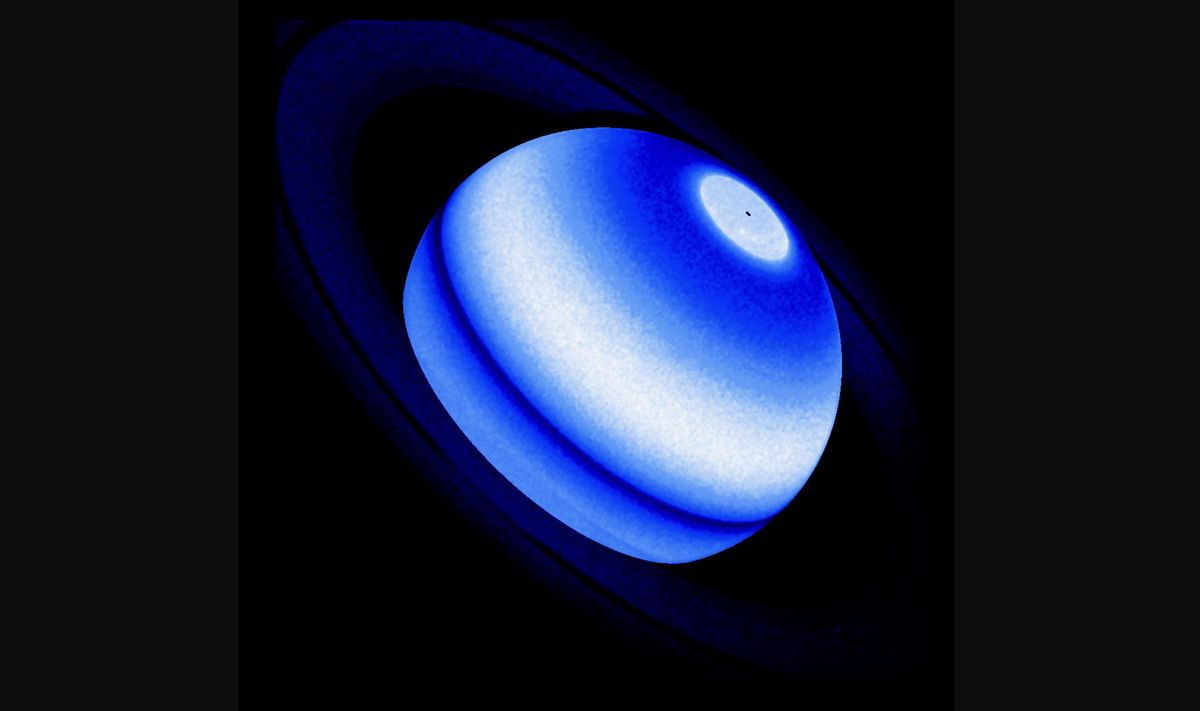Surprise! Icy 'rain' from Saturn's rings is heating the gas giant's atmosphere
By Robert Lea published 31 March 2023
The phenomenon had never been seen in the solar system before.

This composite image shows the Saturn Lyman-alpha bulge, an emission from hydrogen that is a persistent and unexpected excess detected by three distinct NASA missions, namely Voyager 1, Cassini, and the Hubble Space Telescope between 1980 and 2017. (Image credit: NASA, ESA, Lotfi Ben-Jaffel (IAP & LPL))
Icy "rain" from Saturn's rings is heating the gas giant's atmosphere, a phenomenon never seen in the solar system before, a new study suggests.
The unexpected discovery, which came as the result of examining data collected from various space missions including NASA's Hubble Space Telescope, the retired Cassini probe and the Voyager 1 and Voyager 2 spacecraft, could help researchers predict if exoplanets have ring systems.
The telltale evidence of the newfound phenomenon takes the form of a spectral line in light from Saturn, which represents hot hydrogen in the gas giant's atmosphere. This radiation "bump" indicates that something is contaminating the atmosphere and heating it from the outside.
The most plausible explanation for this heating, study team members said, is icy particles raining down from the rings of Saturn, carrying with them energy that heats the planet's atmosphere through collisions with other particles.
More:
https://www.space.com/saturn-rings-icy-rain-heating-atmosphere
